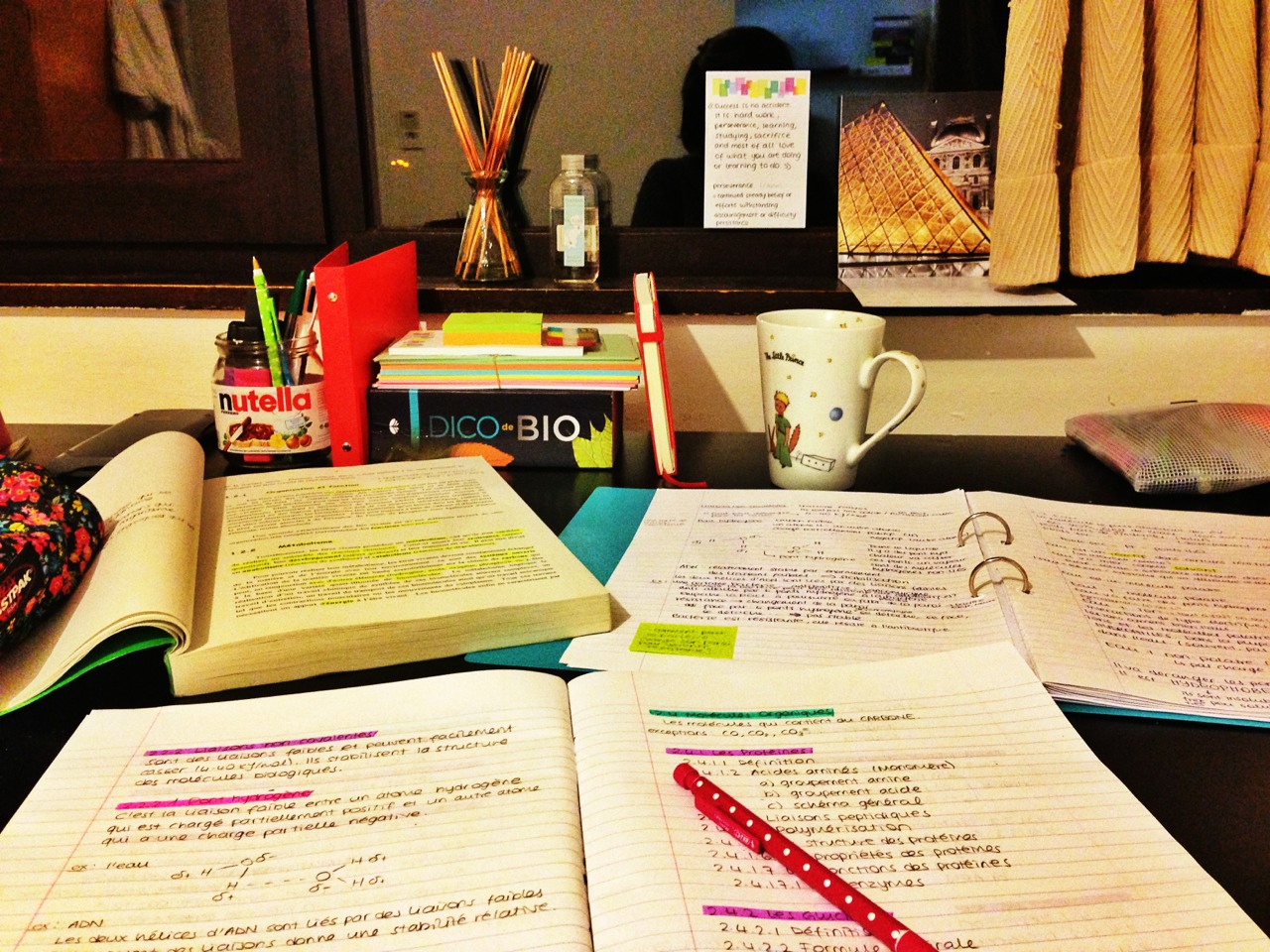Description: Joanna, who is pursuing a degree in Chemical Engineering at The University of Cambridge shares her top tips on effective revision strategies.
Have you got exams starting soon? Maybe it’s end of year tests or it could be exams you’ve been working towards for the past couple of years, such as GCSEs or A Levels. Whatever it is, you’ll be starting the dreaded revision period. But don’t worry! Everyone can get through it. This article will give you some key tips to help you get the most out of this crucial time.
Practice Practice Practice!
You’ve heard the saying practice makes perfect, well when it comes to exams this is exactly the case. As nice as it may be to have artistic notes, there is always a danger of spending too much time making your notes look nice at the expense of practising exam technique.
Knowing and understanding the content well is important and so there is a place for making revision notes. However, it is equally important to consolidate your knowledge by answering questions and to get familiar with the format of your exam.
Start by answering questions open book so you can focus on getting used to applying your course material. Then allow a good amount of time for practicing past papers under exam conditions. This will help you to identify what areas you need to revisit, to know how to plan your time in an exam and to get used to the style of questions you will be asked.
Excellent subject knowledge combined with well-rehearsed exam technique will reduce the number of marks you lose and could be the difference in you getting a higher grade. The key to getting this balance is by planning effectively and starting your revision in good time.
Make a Schedule & Start in Good Time
It can be tempting to put off revision until the last minute, otherwise known as procrastinating. However, you will do yourself a massive favour if you make an early start and have a clear plan of what you want to do. If you try to cram information the night before, not only will you be more stressed when sitting the actual exam, you’re less likely to retain the knowledge and do well.
That being said, it’s important to give yourself a realistic time period for revision so that you don’t start too far in advance and get burnt out by the time the exams roll around.

Decide how long you’d like to spend going over content and how long you’d like to spend practising questions (eventually under exam conditions). Then work backwards from when your exams begin to give yourself a comfortable amount of time to revise.
Make sure you leave yourself enough slack time so that you’re not anxiously following a rigid timetable and so you have time to seek help from teachers if you come across something you want additional support with. This will help you feel more confident and relaxed about doing your exams, as you won’t have felt rushed or not had time to properly go over certain topics.
It’s up to you to decide if you want a very structured schedule which outlines what you are going to do everyday or a more relaxed schedule which outlines what you want to achieve by the end of each week for example.
Whatever you choose, don’t overwork yourself by doing too many hours a day and make sure to factor in enough time for breaks and hobbies you enjoy, to take your mind off revision and make you even more efficient when you are working.
Active Body, Active Mind
Even if you’re not the biggest fitness enthusiast, there are proven benefits to staying active during your exam period. When you exercise you release hormones that decrease tension and stress and so you are able to stay more relaxed mentally and study more effectively.
Keeping your head refreshed by incorporating exercise into your routine boosts your concentration levels and helps you to retain information better.
It’s important to be flexible and work with your body. For instance, if you are the most productive in the morning, schedule a workout around this so that you don’t miss out on valuable studying time. Maybe a mid-afternoon session would be a perfect way for you to break up your revision.
Or an early evening session to help you unwind after a long day. It’s no doubt you’ll be very busy leading up to your exams, but your exercise doesn’t need to last for hours to do good! Anything that gets the blood flowing such as a cardio circuit, a short run or other aerobic activities will give you the cognitive benefits you want, without taking up lots of time and will help you sleep better.
Time to Sleep
It’s easy to put off sleeping and even pull all-nighters in an attempt to get more work done. However, in the long run this is counterproductive. A good night’s sleep will help you be your best during revision.
It is better to start early, get the most out of your day and give yourself time to unwind in the evenings rather than stay up late and struggle to keep awake the next day or have to live on caffeine to function.
Work back 8-10 hours from when you want to be waking up to schedule when you need to go to bed. A healthy amount of sleep every day enables you to wake up fresh every morning and helps you to process information better.
This is particularly useful for when exam stress starts to set in, as being well rested boosts your mood and general well-being. It also has the benefit of improving your memory and knowledge recall. Taking care of your body by being active regularly, sleeping well and eating well will help your mind stay healthy during revision.
Food for the Brain
Like with sleep, students have a tendency to neglect a well-balanced diet routine for the sake of spending more time revising. Don’t skip meals or eat lots of junk food to try and temporarily boost your energy levels. Instead, make sure you are eating healthily and at regular times so you can work efficiently throughout the day.
Drink plenty of water! Your brain will be doing a lot of work taking in all this information and so staying hydrated is important for you to maintain good health. Energy drinks may seem like a viable substitution and a short-term fix to tiredness, but they contain a lot of sugar and caffeine which will dehydrate you and can increase anxiety levels.
Similarly, reduce your intake of fatty foods and sugary snacks. Having proper meals will keep you fuelled throughout your revision, particularly meals that contain slow-release carbohydrates. There are also a variety of different healthy snacks you can have if you’re feeling peckish such as pitta bread and hummus, fresh fruit or nuts.
Bringing It All Together
By practising lots of questions, planning your time, keeping active, eating well and getting enough sleep, you are giving yourself the best chance at succeeding with your revision.
No matter what stage you are at in your educational career, these are good habits to incorporate into your exam revision and even everyday life. Remember to look after your mind and your body and to have confidence in the hard work you’ve put in. All the best in your exams!
Need help with revision or interested in working with Joanna? Contact us today.

